Mangoes, often called the “king of fruits,” are a tropical delight adored by many for their luscious sweetness and unique flavor. However, enjoying mangoes isn’t just about savoring their taste—it’s also about understanding how they interact with other foods. Surprisingly, pairing mango with the wrong companions can lead to digestive issues, allergic reactions, or diminished flavor. In this article, we’ll dive into the science behind these clashes and explore the foods and beverages you should avoid mixing with mango. By the end, you’ll also discover safe pairings that allow mango to truly shine.
Table of contents
Why Mango Can Be Tricky to Pair
Mangoes aren’t just delicious; they’re nutritional powerhouses loaded with vitamins, antioxidants, and enzymes. But the very compounds that make mangoes so beneficial can sometimes clash with other foods. Let’s uncover the chemistry behind this tropical fruit.
Understanding Mango’s Nutritional Profile
Mangoes are rich in vitamin C, beta-carotene, and fiber. These nutrients are fantastic for boosting immunity and aiding digestion. However, mangoes also contain enzymes like amylase, which help break down starches. When paired with certain foods, these enzymes may cause digestive disruptions.
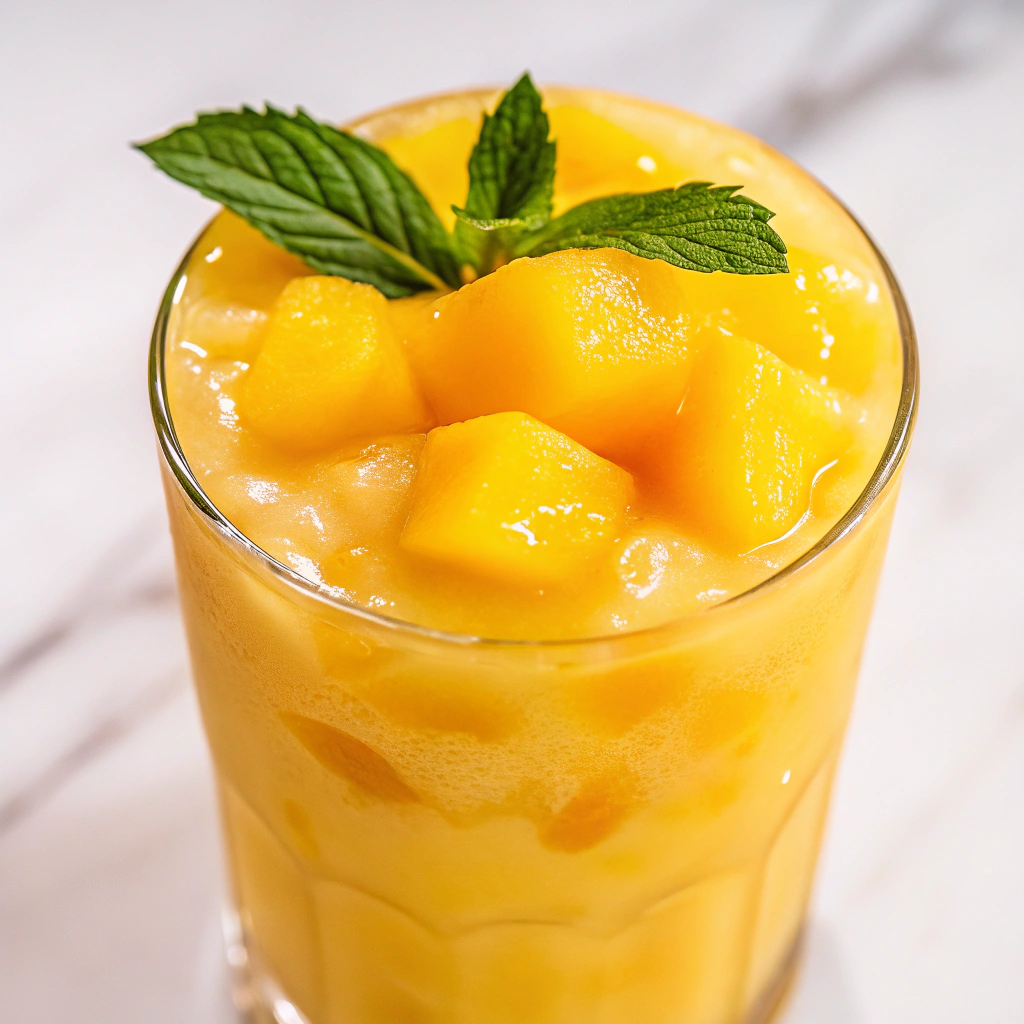
For instance, mango’s high fructose content can interfere with slow-digesting foods, leading to bloating or discomfort. Additionally, its natural sugars can ferment in the stomach when combined with certain beverages, creating the perfect storm for gastric distress.
Allergic Reactions and Food Sensitivities
While mangoes are generally safe for most people, some individuals experience contact dermatitis or oral allergies after consuming them. Mangoes belong to the same plant family as poison ivy, which means their skin and sap can trigger allergic reactions.
These sensitivities can be exacerbated when mangoes are mixed with acidic foods or allergens like seafood. This isn’t just a matter of personal tolerance; even those without a mango allergy might find certain pairings troublesome.
Foods That Don’t Pair Well with Mango
Mango is a versatile fruit, but not every food gets along with its bold sweetness and unique chemistry. Surprisingly, certain common combinations can disrupt digestion or mute mango’s vibrant flavor. So, if you’re wondering what not to mix with mango, here’s what you should know.
Why Mango and Dairy Don’t Mix
Mixing mango with dairy, like milk or yogurt, might sound delicious, but it can spell trouble for your stomach. Ayurveda, the ancient Indian medical system, warns against this combination, claiming it can disrupt digestion and create toxins in the body.
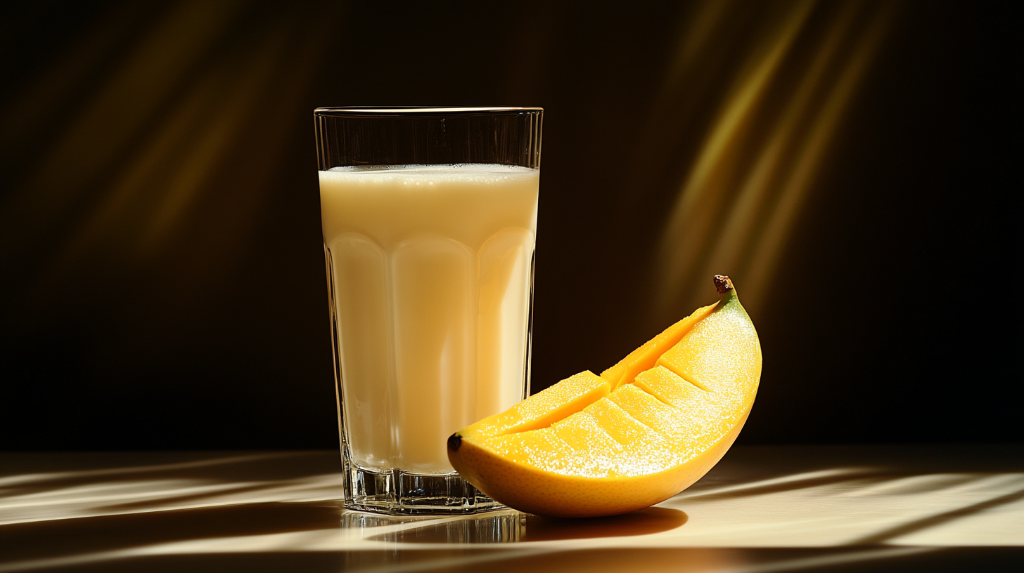
From a modern perspective, mango’s natural acids and enzymes can curdle milk, leading to bloating, gas, or discomfort. Ever noticed that mango milkshakes sometimes leave you feeling queasy? That’s why! Yogurt fares no better, as the acidic environment can clash with mango’s sweet enzymes, potentially upsetting your stomach.
Spicy Foods and Mango: A Poor Match
While mango chutney with spicy dishes might sound tempting, it’s a tricky pairing for digestion. Mango’s natural sugars can intensify the heat of spicy foods, making them overwhelming for the palate. Moreover, the contrasting effects on the digestive system—spicy foods often stimulate heat, while mango cools—can lead to a confused stomach.
If you’re sensitive to digestive upsets or prone to acid reflux, keeping mango and spicy foods separate might save you some trouble.
Drinks to Avoid with Mango
Mango’s refreshing sweetness makes it a go-to addition in many drinks, but not every beverage pairs well with this tropical fruit. Understanding what not to mix with mango can help you avoid some unpleasant side effects.
Alcohol and Mango: Not Always a Safe Combo
Pairing mango with alcohol might seem harmless, but it can cause more harm than good. Alcohol, particularly spirits, slows down digestion, while mango’s high sugar content can speed things up. This mismatch might lead to gastric discomfort, bloating, or even nausea.
Additionally, some people report allergic-like symptoms when mango is combined with alcohol, such as flushed skin, hives, or itching. If you’re indulging in cocktails, it’s better to skip the mango garnish to avoid surprises.
Why Carbonated Drinks and Mango Don’t Work
Carbonated drinks, like sodas, are another beverage to avoid mixing with mango. The fizz from carbonation can amplify the fermentation of mango’s natural sugars in the stomach, leading to bloating and gas.
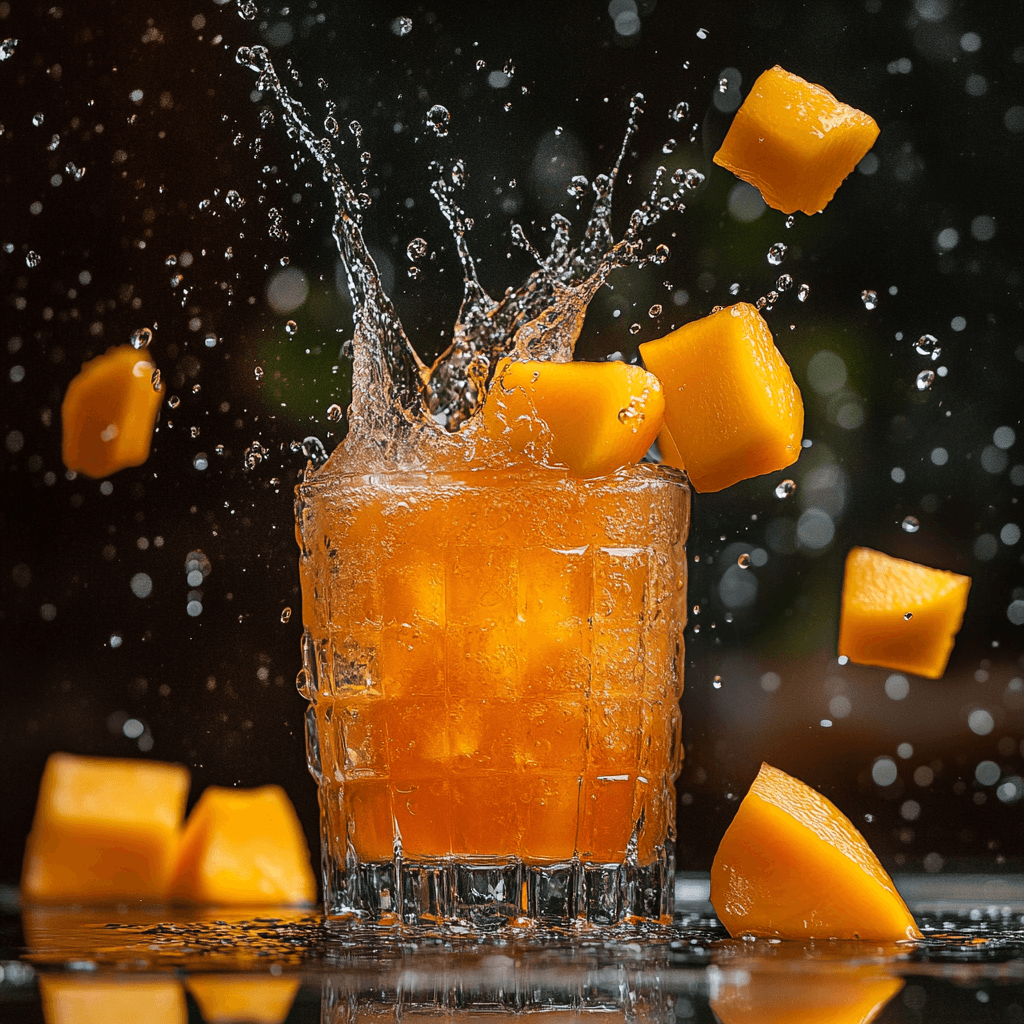
For instance, if you’ve ever combined mango with a fizzy drink and felt unusually full or uncomfortable, you’ve experienced this reaction firsthand. To avoid this, stick to still beverages or enjoy mango as it is—simple and unadulterated.
Mango Pairings from Ayurveda and Science
Food traditions and modern science often align when it comes to understanding the body’s response to certain food combinations. When it comes to what not to mix with mango, both Ayurveda and contemporary medicine offer valuable insights.
Ayurveda’s Guidelines on Mango Combinations
In Ayurveda, mango is considered a “heating” food, which means it generates warmth in the body. Pairing mango with “cooling” foods, like yogurt or buttermilk, is discouraged. This is believed to disrupt the body’s digestive fire, or Agni, leading to the formation of toxins, known as Ama.
Another classic Ayurvedic principle advises against mixing mango with seafood. The combination is said to imbalance the body’s doshas, which are energies that govern bodily functions. While these claims are rooted in traditional beliefs, they align with the broader principle of avoiding overly complex food pairings for better digestion.
Medical Insights into Digestive Impacts
Modern science sheds light on why some mango pairings cause discomfort. Mango contains fiber, sugars, and enzymes that can speed up digestion. When combined with slow-digesting foods, like protein-rich items, this can result in fermentation in the gut, causing bloating or gas.
Additionally, combining mango with highly acidic foods or beverages, such as citrus juices or soft drinks, can irritate the stomach lining. This is especially concerning for individuals prone to acid reflux or sensitive digestion. Medical professionals often suggest spacing out mango consumption from such foods to prevent discomfort.
If you’re curious about pairing mango in dishes that complement its properties, check out this recipe article for innovative combinations.
Surprising Combos That Don’t Work
Mango may seem like a flexible ingredient, but some lesser-known combinations can be surprisingly harmful. Knowing what not to mix with mango can prevent unexpected reactions.
Mango and Seafood: A Bad Match?
While seafood and mango appear together in certain cuisines, such as tropical salads, they’re not always a good match. Combining these can sometimes lead to allergic-like symptoms, including hives or stomach discomfort. Seafood is a common allergen, and mango’s compounds may intensify allergic reactions in sensitive individuals.
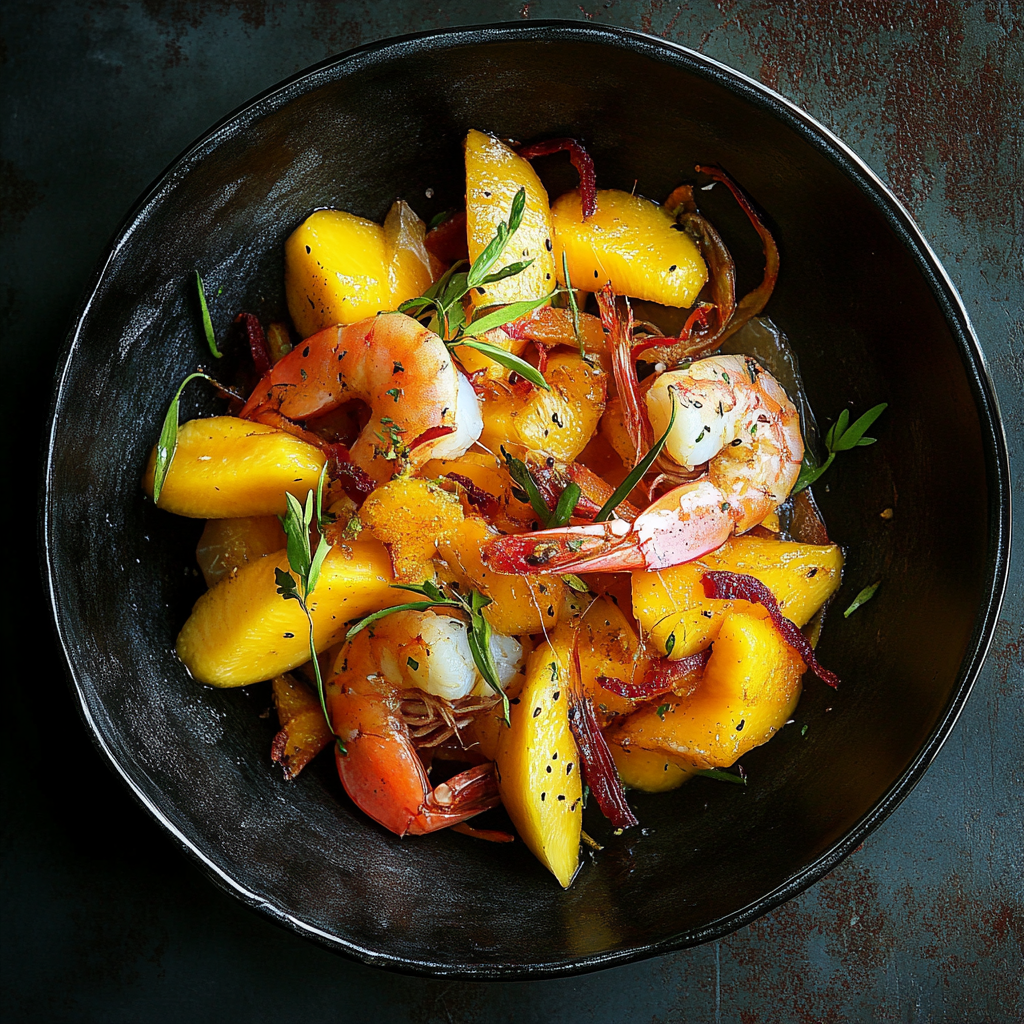
Mixing Mango with Certain Veggies or Herbs
Not all vegetables harmonize with mango’s sweetness. Pairing mango with bitter or sulfur-rich vegetables, such as broccoli or kale, might produce an unpalatable taste and may slow digestion. Similarly, certain herbs with potent flavors, like cilantro, can overpower mango’s delicate balance unless used sparingly.
For more culinary inspiration that keeps food pairings harmonious, check out this guide to tropical recipes.
What Goes Well with Mango
While it’s essential to know what not to mix with mango, understanding the best pairings can help you fully enjoy this tropical fruit. Mango’s sweet, tangy flavor works beautifully with a variety of complementary ingredients.
Complementary Fruits and Vegetables
Mango pairs wonderfully with other tropical fruits, such as pineapple, papaya, and banana. These fruits share similar flavor profiles and textures, creating balanced combinations for smoothies, salads, or desserts.
In the vegetable world, cucumbers and bell peppers make great companions to mango. Their mild taste and crisp texture add contrast to mango’s juicy sweetness, making them perfect for salads or salsas.
Dishes and Desserts That Work Well
For main dishes, mango shines in recipes like mango chicken curry or as a topping for grilled fish. In desserts, mango is a star in parfaits, sorbets, and cheesecakes. Its natural sweetness enhances recipes without overpowering them.
If you’re looking for more ideas, check out this tropical dessert guide for inspiration.
Frequently Asked Questions (FAQs)
Can You Drink Milk After Eating Mango?
This is a common query when people think about what not to mix with mango. The answer is generally no. Mango’s enzymes can curdle milk, potentially leading to indigestion or bloating. Instead, enjoy mango with almond or coconut milk for a lactose-free alternative.
Is Mango Bad with Citrus Fruits?
While mango and citrus fruits like oranges may seem like a refreshing pairing, the acidity of citrus can overshadow mango’s natural sweetness. If you enjoy the combination, balance it by adding a neutral ingredient like yogurt or oats.
What Happens If You Eat Mango and Alcohol Together?
Mixing mango and alcohol is another controversial topic. While not dangerous for everyone, this combination can cause discomfort in some due to mango’s sugar content reacting with the alcohol, which may lead to bloating or nausea.
What Are the Effects of Eating Mango and Pickles Together?
Mango and pickles (such as in Indian cuisine) are a delightful pairing. The tangy and spicy flavors of pickles enhance the sweet-tart taste of mango. However, people with sensitive stomachs might find this combination a bit acidic.
Can Mango Be Consumed at Night?
Mango can be eaten at night, but it’s advisable to do so in moderation. Because mango is high in natural sugars, eating it close to bedtime might provide a quick energy boost and disrupt your sleep cycle for some people.

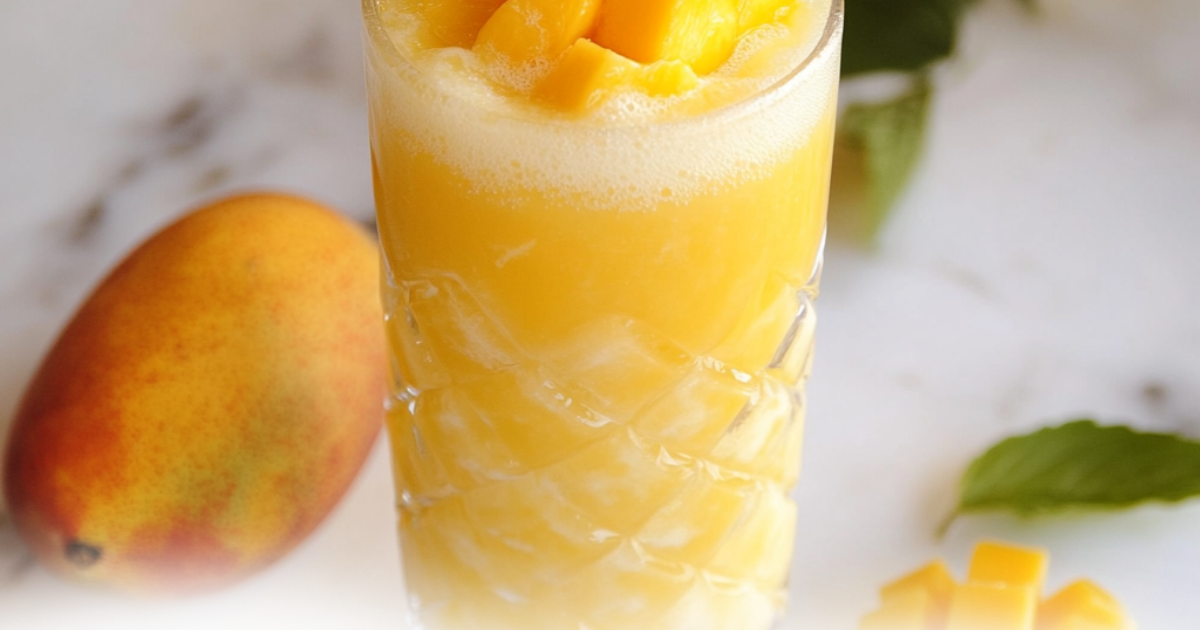
1 thought on “What Not to Mix with Mango?”